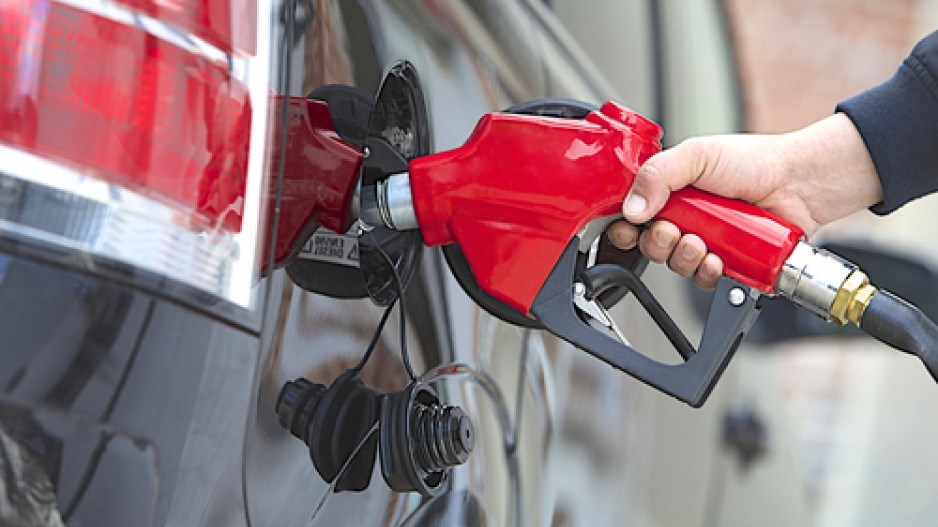Neither plunging oil prices nor proximity to an abundant source of oil in Alberta has translated yet into a break at the pumps for many British Columbians, at least not compared to most other cities in Canada and the U.S.
Oil has fallen below US$80 per barrel, and gas prices have been dropping in major cities across Canada and the U.S.
But B.C. drivers still pay some of the highest prices in the country. Gas prices in Vancouver are in the $1.27 per litre range, according to various gas tracking websites, while just across the border in Blaine, Washington, prices are $0.9290 per litre, according to tomorrowsgaspricetoday.com.
Gas prices in Toronto, meanwhile, are at about $1.14 per litre, and $1.06 per litre in Calgary.
B.C. is the only province in Canada with a carbon tax, which adds about $0.07 per litre to the price at the pumps. That still does not explain why gas prices in Vancouver have actually moved up while they moved down elsewhere.
The price of oil does have a direct impact on gas prices, said Ken Green, senior director of the Fraser Institute's Centre for Natural Resources, although he adds there are other factors involved, such as taxation levels, refining capacity and transportation costs.
The Chevron refinery in Burnaby supplies about 25-30% of the Lower Mainland’s gas and diesel. The Trans Mountain pipeline supplies some of the refinery’s oil, but nowhere near what it needs, so it also has to bring in oil, mostly by truck, from Alberta and Manitoba.
And it’s not clear whether Chevron will get access to more crude from Alberta after Kinder Morgan Inc. (NYSE:KMI) expands the Trans Mountain pipeline, because most of that oil would be destined for refineries in the U.S. and Asia, not B.C.
Kenneth Green, senior director of the Fraser Institute's Centre for Natural Resources, said pricing at pumps is determined by a wide range of factors, so it is hard to say just how much of Vancouver’s high prices are related to supply issues or taxes.
“It could be a matter of very high demand in Vancouver for limited supply, because the refinery may be at capacity,” he said. “It could be higher labour costs in the supply chain in Vancouver that would lead to the prices staying higher.”
Though comparatively high, Vancouver’s gas prices aren’t the highest in B.C. Fort Nelson residents, for example, are paying $1.39 per litre, according to bcgasprices.com.
Although Alberta’s wealth of oil may not translate directly into savings at the pumps for British Columbians, overall it is important to the Canadian economy. And according to a new Fraser Institute survey, Alberta has one of the best investment climates for oil and gas companies in the world.
Of the world’s 27 jurisdictions with large petroleum reserves that the Fraser Institute surveyed for its Global Petroleum Survey, Alberta ranked second, just behind Texas, as the most attractive investment climate for oil. The others ranking in the top five, in descending order, were Norway’s North Sea, the United Arab Emirates and Qatar.
"Alberta's wealth of petroleum reserves continue to attract investment, which creates jobs for scores of Canadians," said Green said.
B.C. has little conventional oil, but it does have large gas reserves. But despite a boom in shale gas development in B.C., driven largely by a nascent liquefied natural gas industry, the Fraser Institute has downgraded its rankings among smaller oil and gas producing jurisdiction – to 62nd place out of 156, down from 47th place in 2013.
"Once again, taxes and regulatory uncertainty drive British Columbia's relatively poor standing in the eyes of oil and gas investors," Green said.
@nbennett_biv



